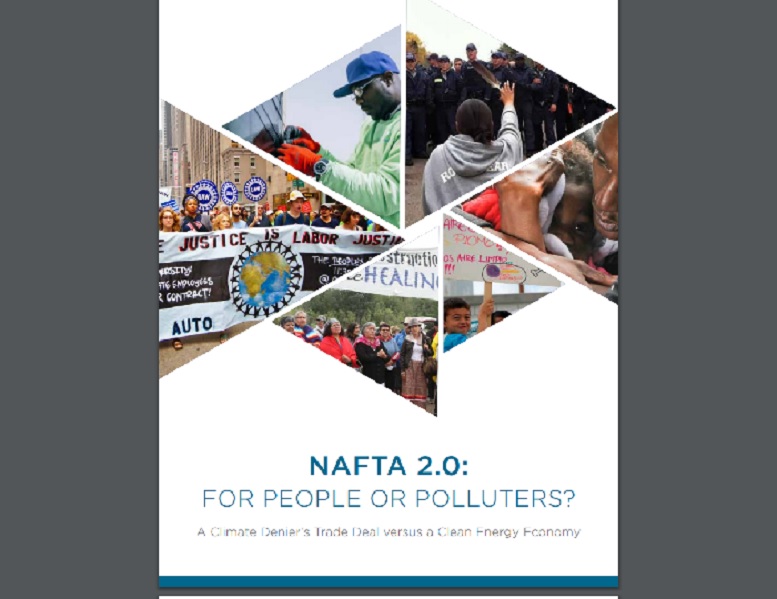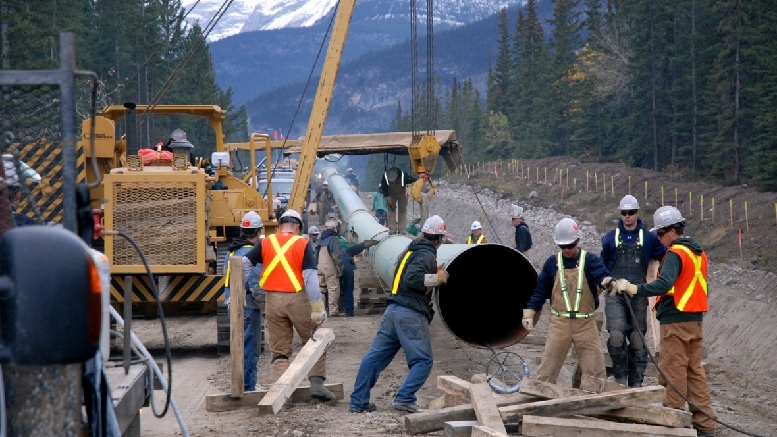The trade talks continue with senior members of the Canadian, American, and Mexican governments to work out details on renewal of the North American Trade Agreement. It’s being called “NAFTA 2.0 For People or Polluters?”
The international trade talks now appear close to reaching an agreement in principle.
However, an tri-national analysis of NAFTA says if certain clauses remain, it would prevent Canada from enacting policies to limit greenhouse gas emissions.
Co-author of the report, Gordon Laxer (PhD), is professor emeritus in Political Economy, and founder of the Parkland Institute at the University of Alberta.
ListenAccording to the study, there are provisions in the original NAFTA document that could well be held over in the new agreement, Of particular concern he says is a “proportionality” clause. This locks Canada in to a certain percentage level of oil and gas exports to the U.S.

Gordon Laxer (PhD) professor emeritus, University of Alberta
Laxer says NAFTA’s existing regulations prevent Canada from reducing almost 1500 megatonnes of greenhouse gas emissions. This would nix any chance Canada has of meeting its Paris Agreement commitments on climate change.
He says the original deal was made long before the world began to realize the seriousness of pollution and climate change and was negotiated with input from the fossil fuel industry
.

The tri-national analysis of the potential environmental and other effects of the potential NAFTA 2.) deal (see link in intro to read report)
“The Trudeau brand is all about progressive sounding, green tinted messages. However, in NAFTA, nothing has been done to address environmentally destructive measures such as energy proportionality or the investor state dispute mechanism. It is scandalous that NAFTA’s proportionality rule locks Canada into perpetual production of climate-polluting tar sands oil and fracked gas. For Canada’s transition to a clean energy economy to begin, this polluter-friendly rule must end.” (Gordon Laxer PhD)
The proportionality rule means Canada must continue to export to the U.S. ( or make available for export) the same percentage of oil and gas as it has in the past three years.
Using economic modelling, the report shows the regulation would lock in almost 1500 megatonnes more greenhouse gas emissions by 2050. This is double Canada’s yearly emissions and more than 12 times greater than its 2050 climate pollution target. It also prevents Canada from enacting policies to move away from oil and gas development in order to reduce emissions.

The TransMountain pipeline to the Pacific coast is currently stalled. Under NAFTA, Canada risks a major lawsuit from the American-based company if it is not completed. Photo: TransMountain
Mexican analysts are also concerned.
Co-author of the report, Dr. Alejandro Álvarez Béjar, economics professor at the National Autonomous University of Mexico is also concerned about what state negotiators are going to include in the deal.
“NAFTA’s existing protections for oil and gas corporations are exacerbating Mexico’s dependency on fossil fuels, crowding out wind and solar power, and encouraging fracking,” says Dr. Béjar. “But proposals for NAFTA 2.0 could make matters even worse by locking in the deregulation of oil and gas in Mexico, creating long-lasting barriers to climate progress.”
Another concern is the likelihood that the Investor State Dispute Settlement clause will remain. This has allowed foreign companies to sue Canada such things as when Canadian environmental policies affect their projects and profits.
Maude Barlow, Honorary Chairperson of advocacy group the Council of Canadians echoes Laxer’s concerns. “For decades, the Council of Canadians has been arguing that NAFTA erodes our ability to have sovereignty over our energy resources”, she says, “and we have been proven right”.
Professor Laxer says he hopes people will take note of the tri-national analysis and begin to put pressure on politicians to modify the agreement to take concerns of the environment and sovereignty into account, and to enable the country to move away from fossil fuel dependency.







For reasons beyond our control, and for an undetermined period of time, our comment section is now closed. However, our social networks remain open to your contributions.